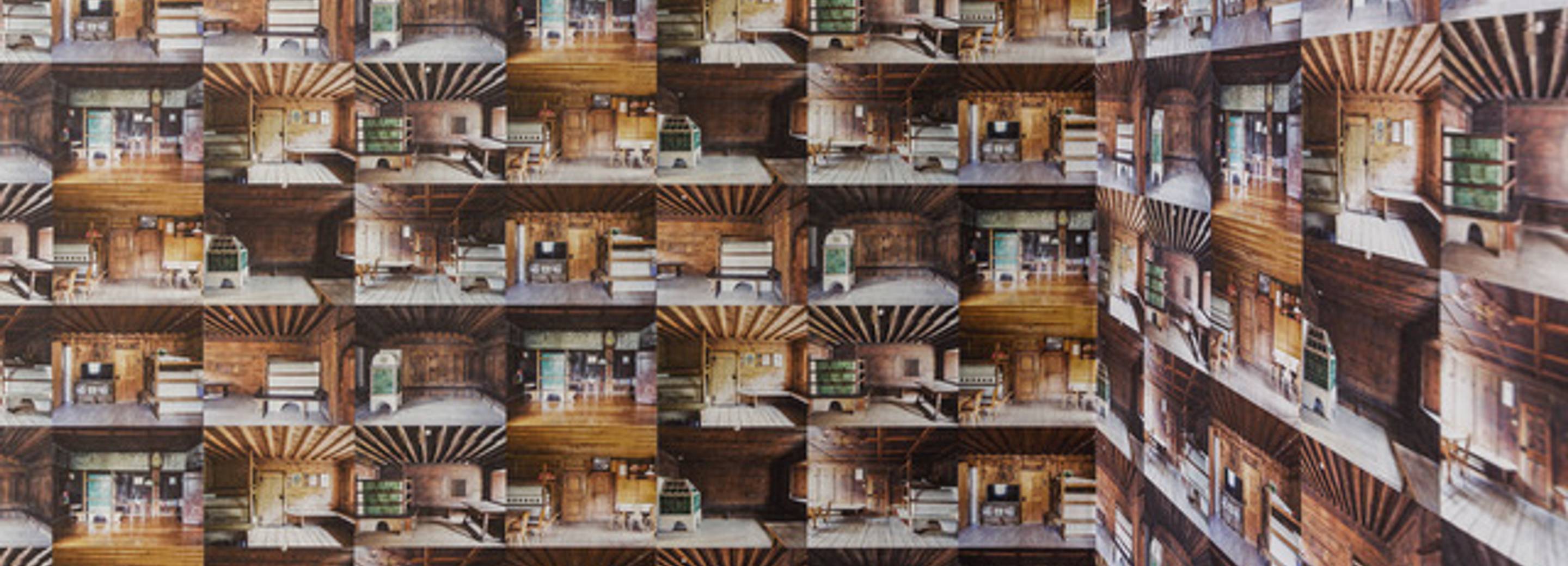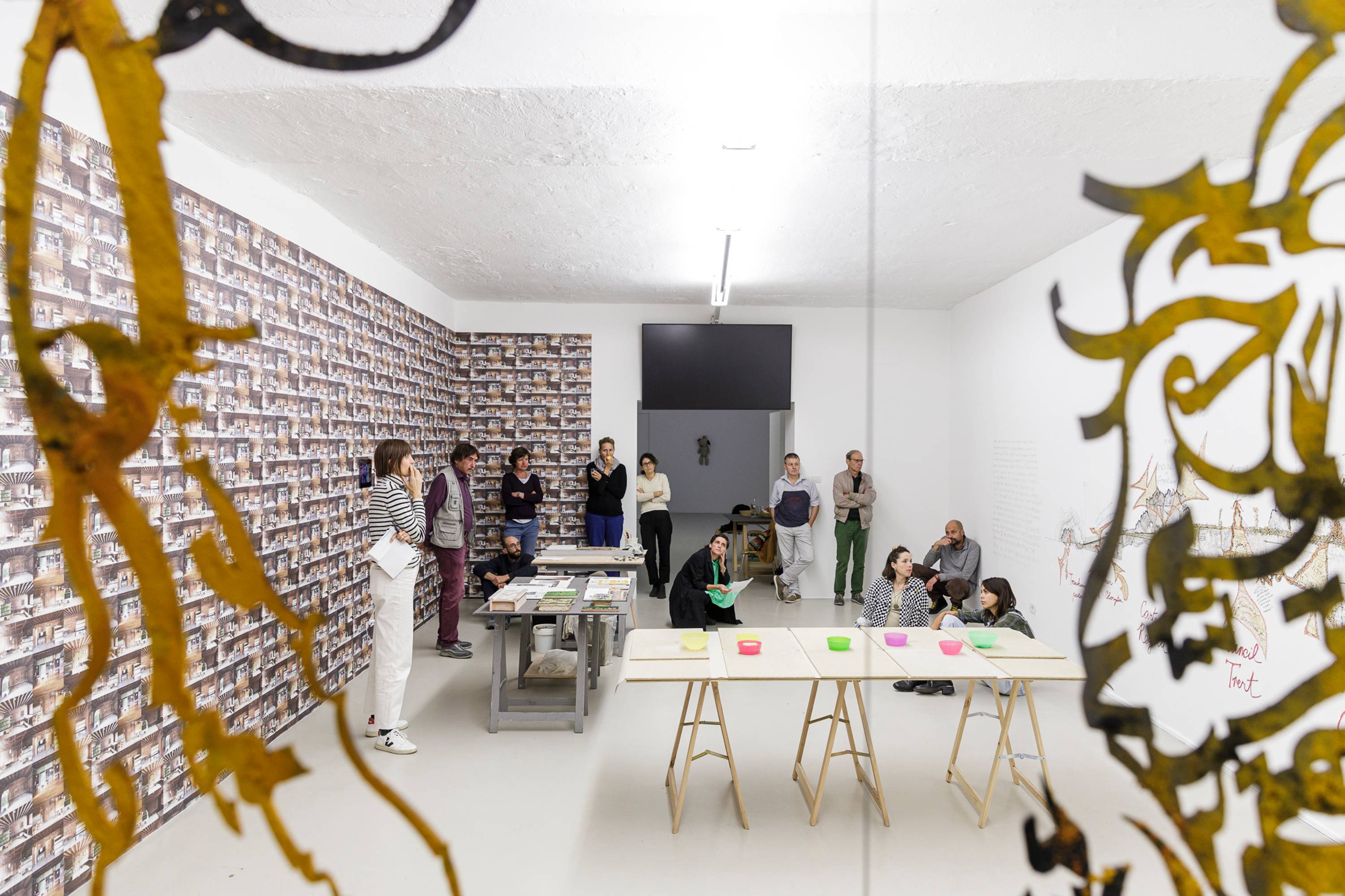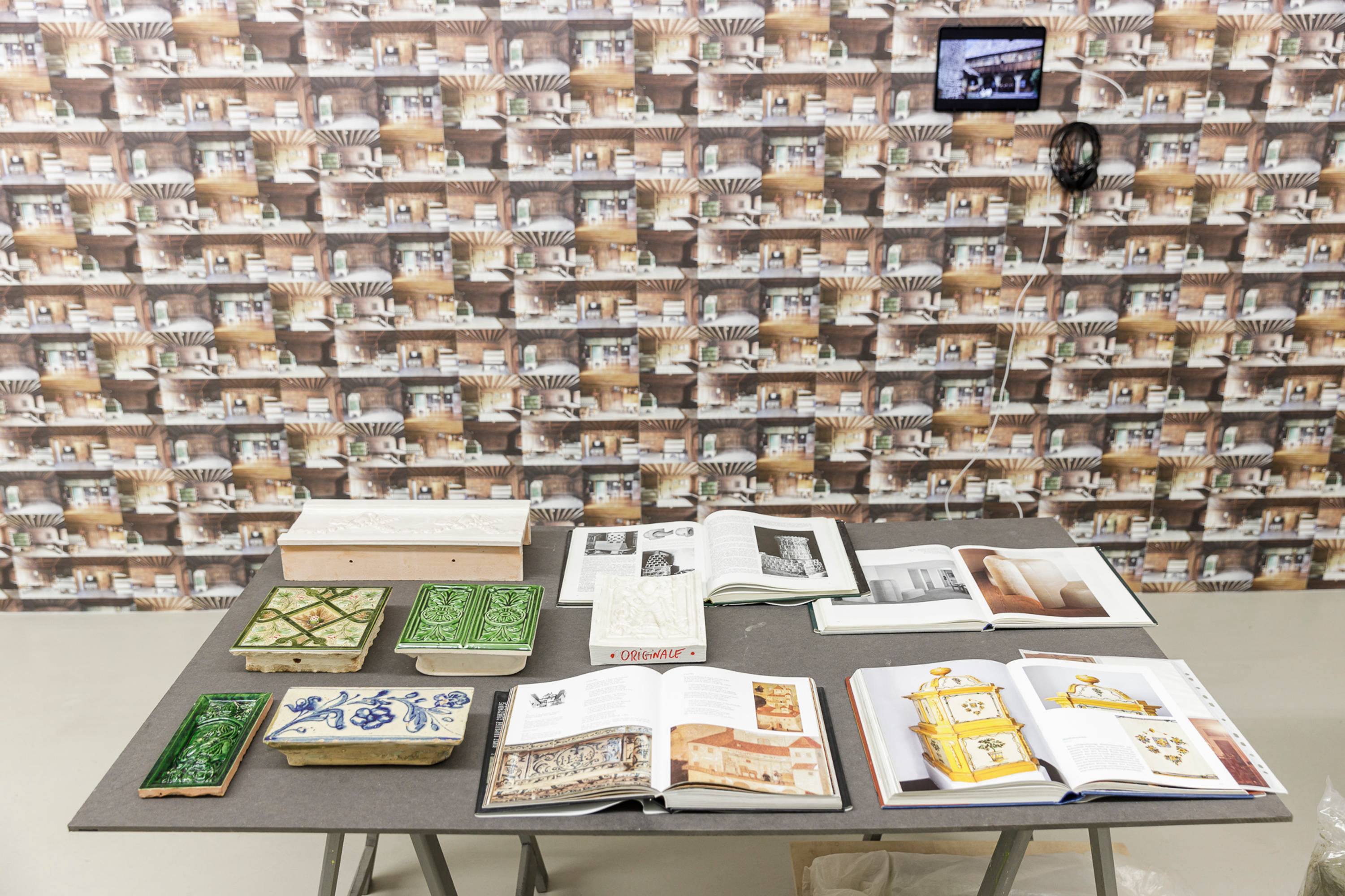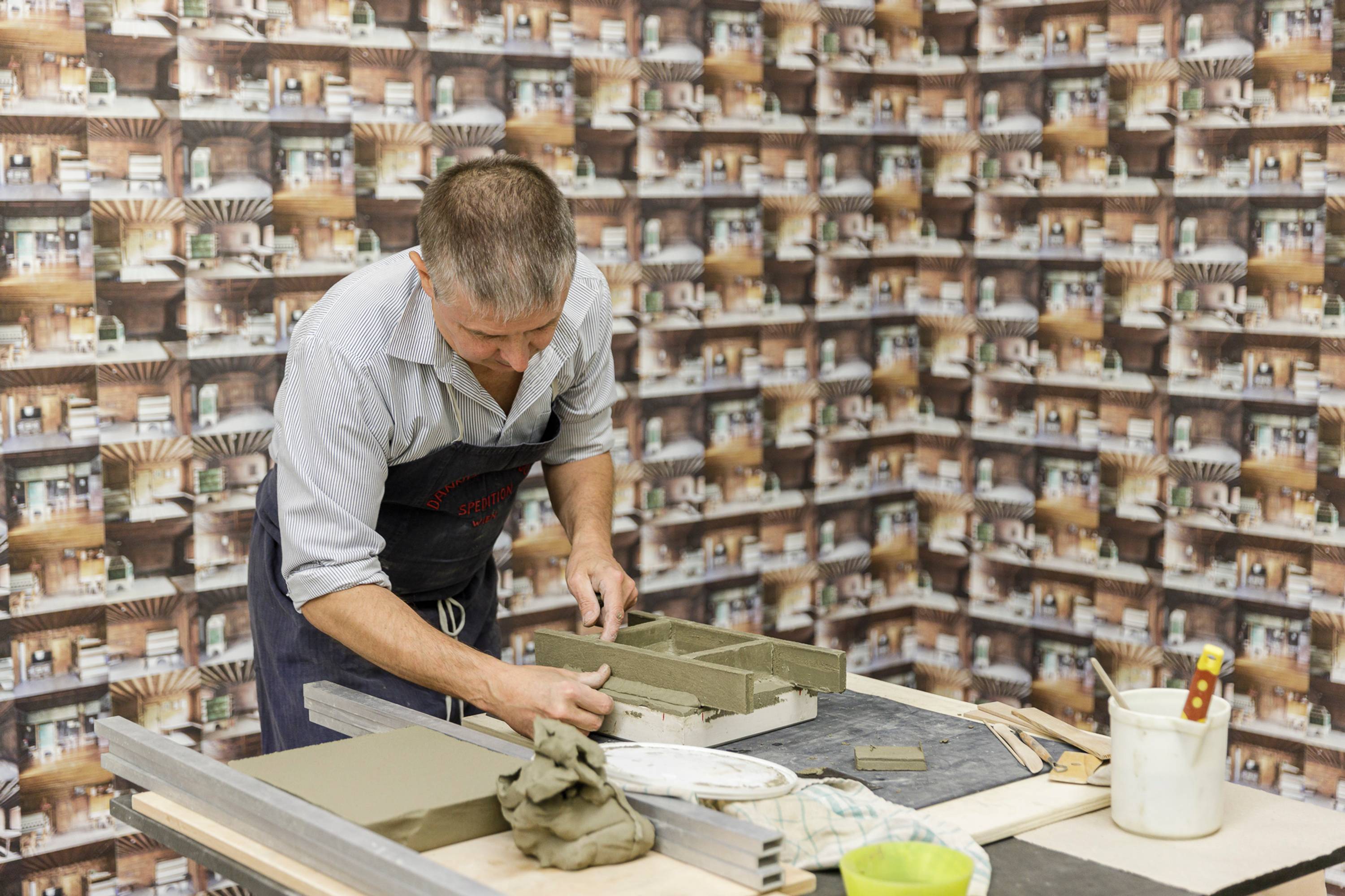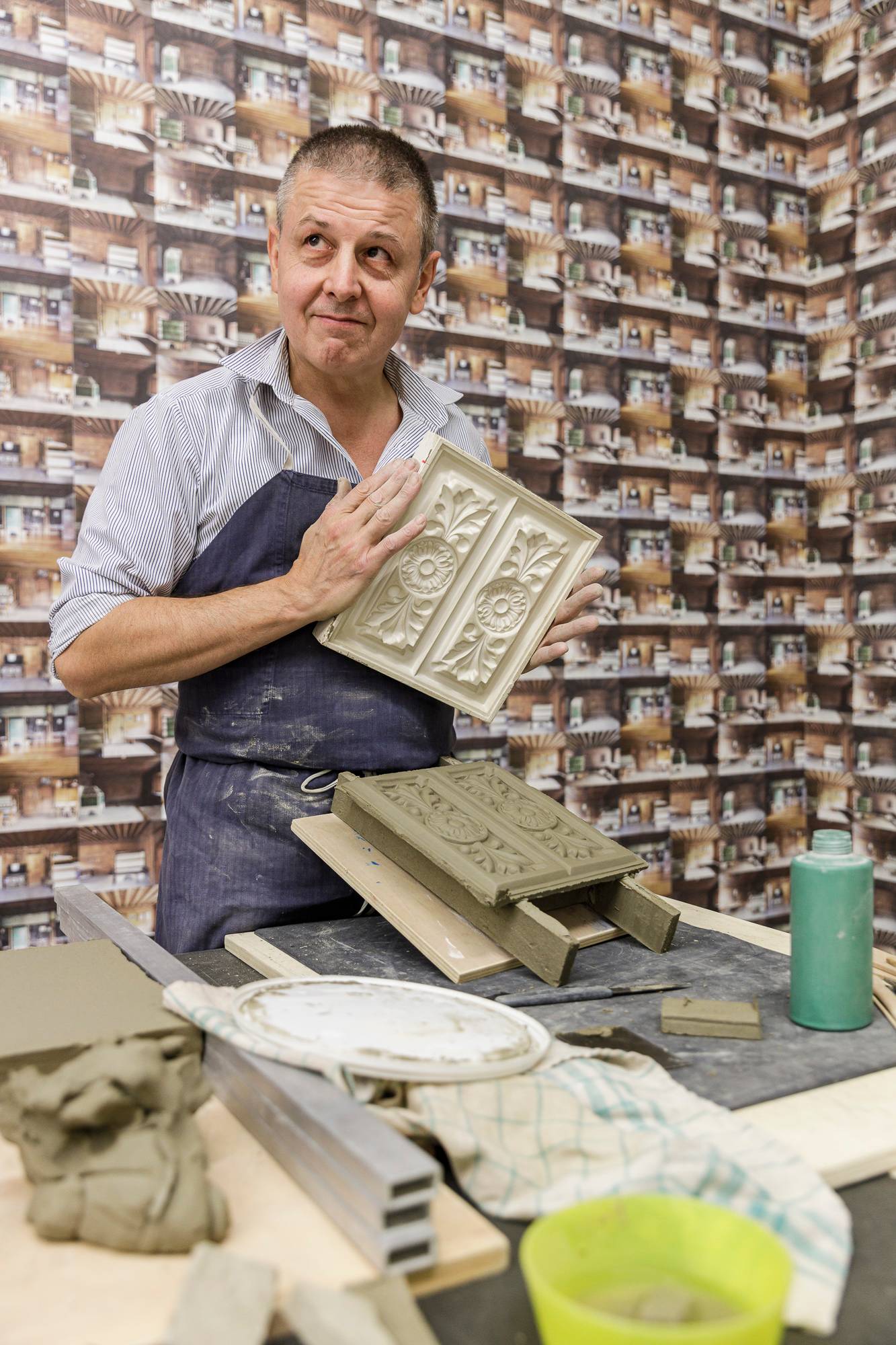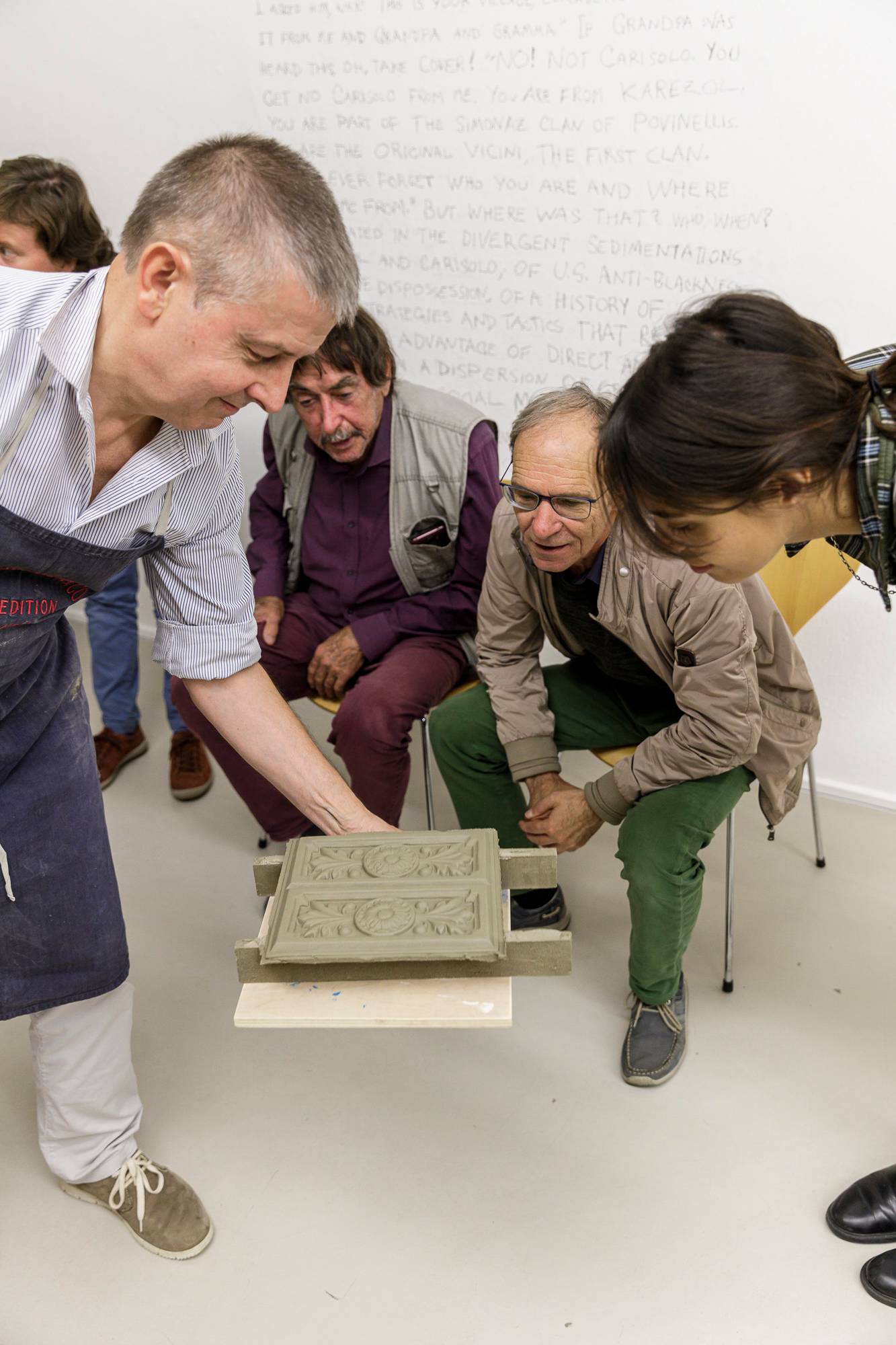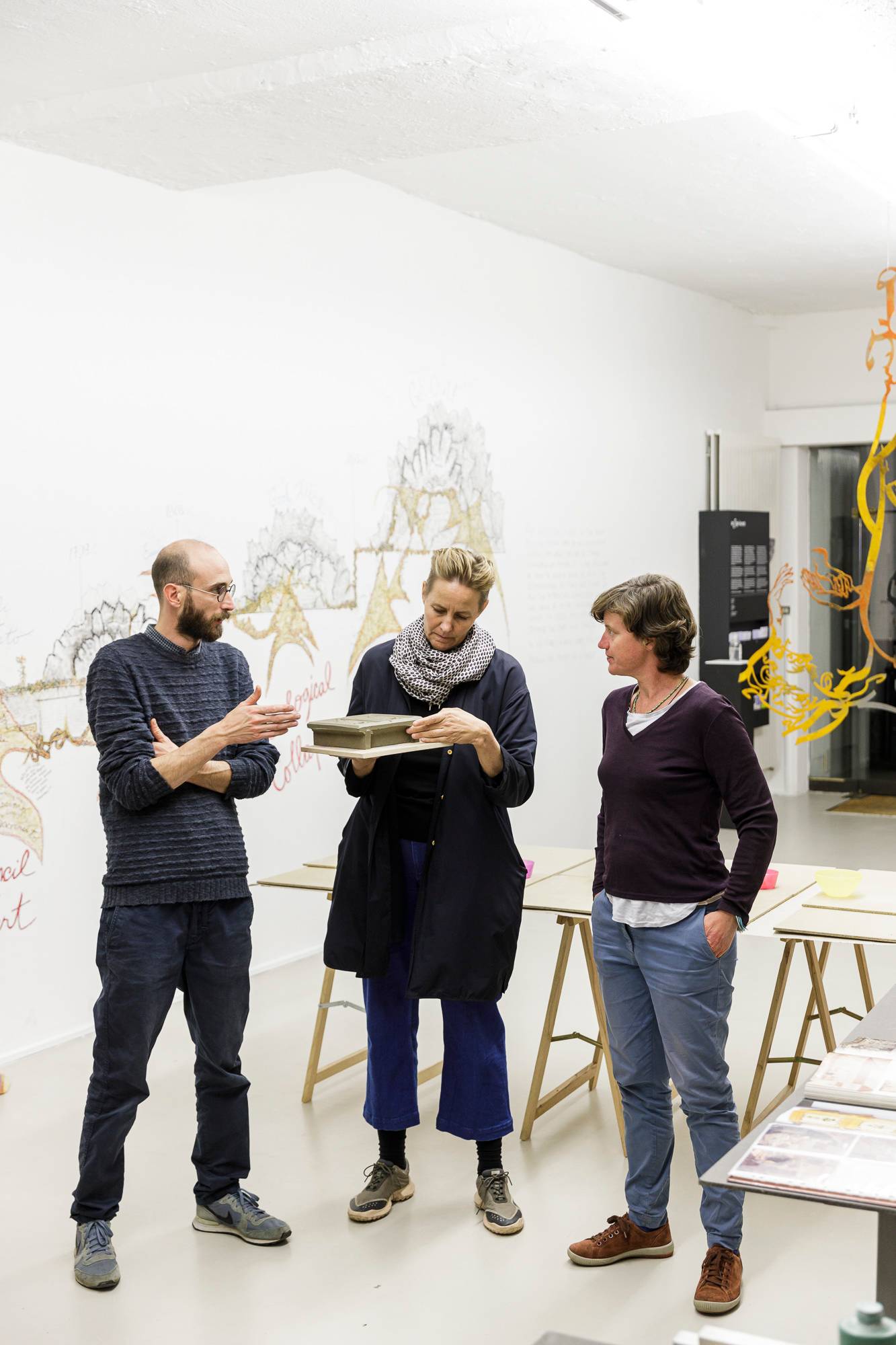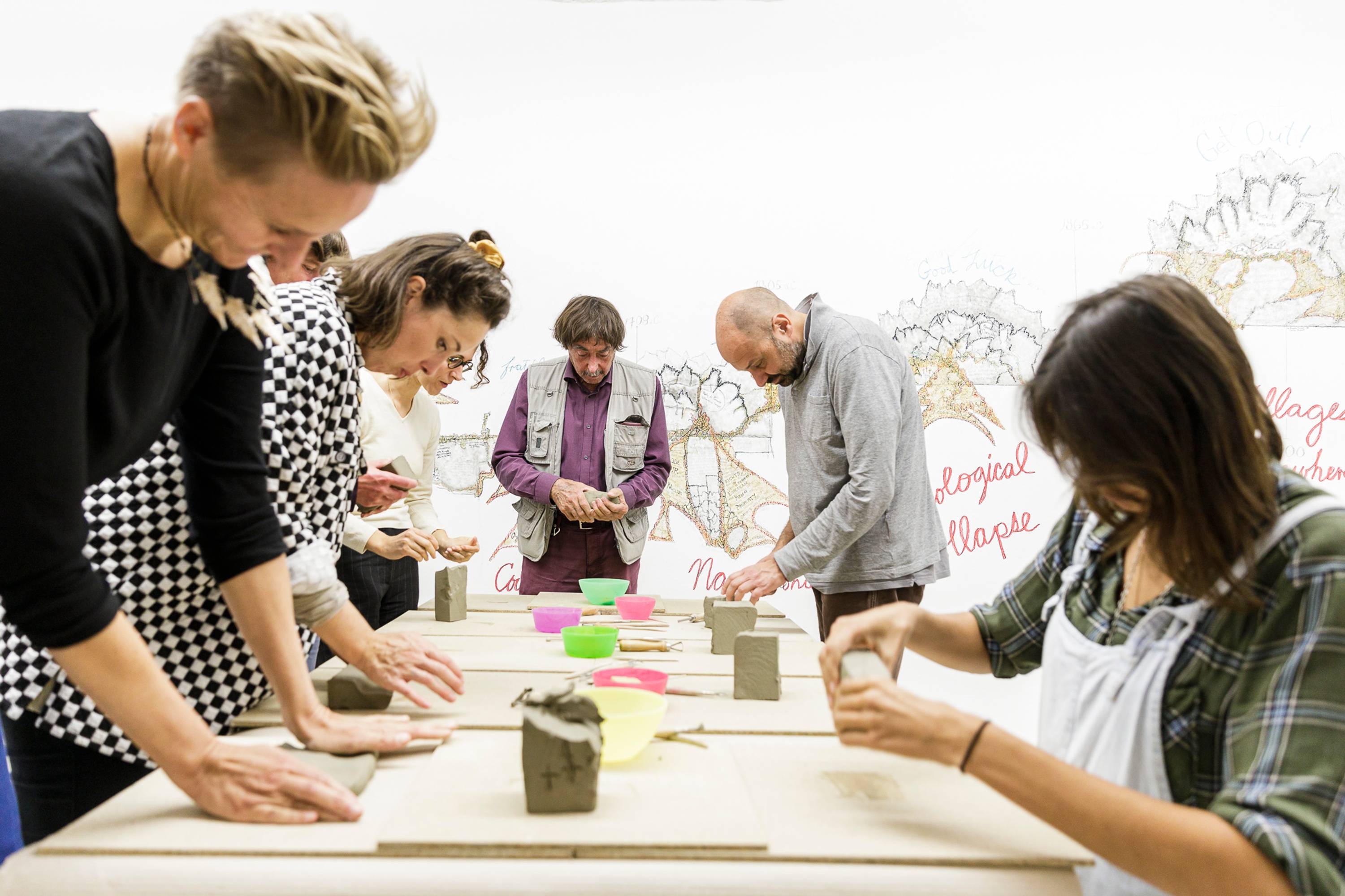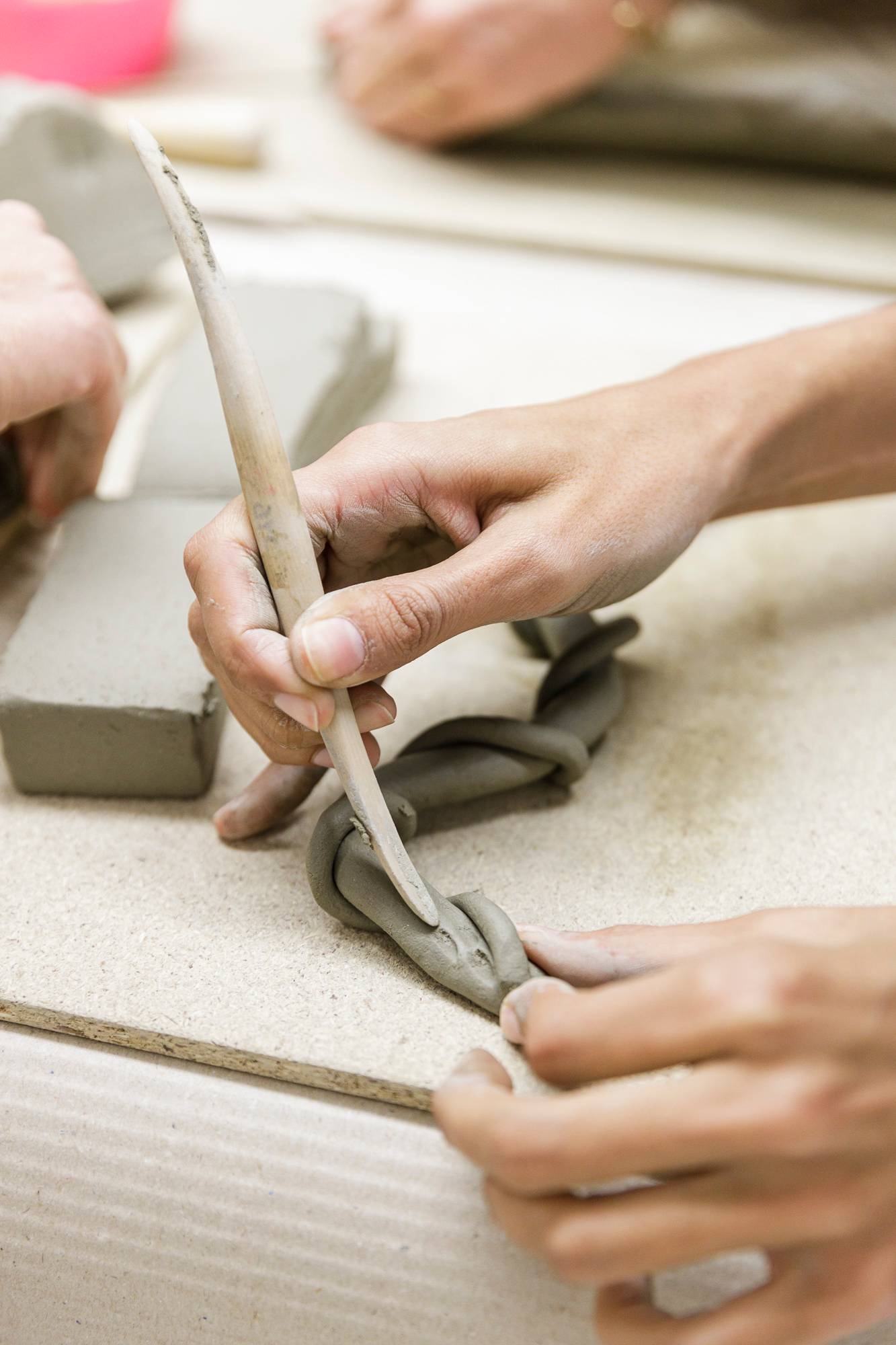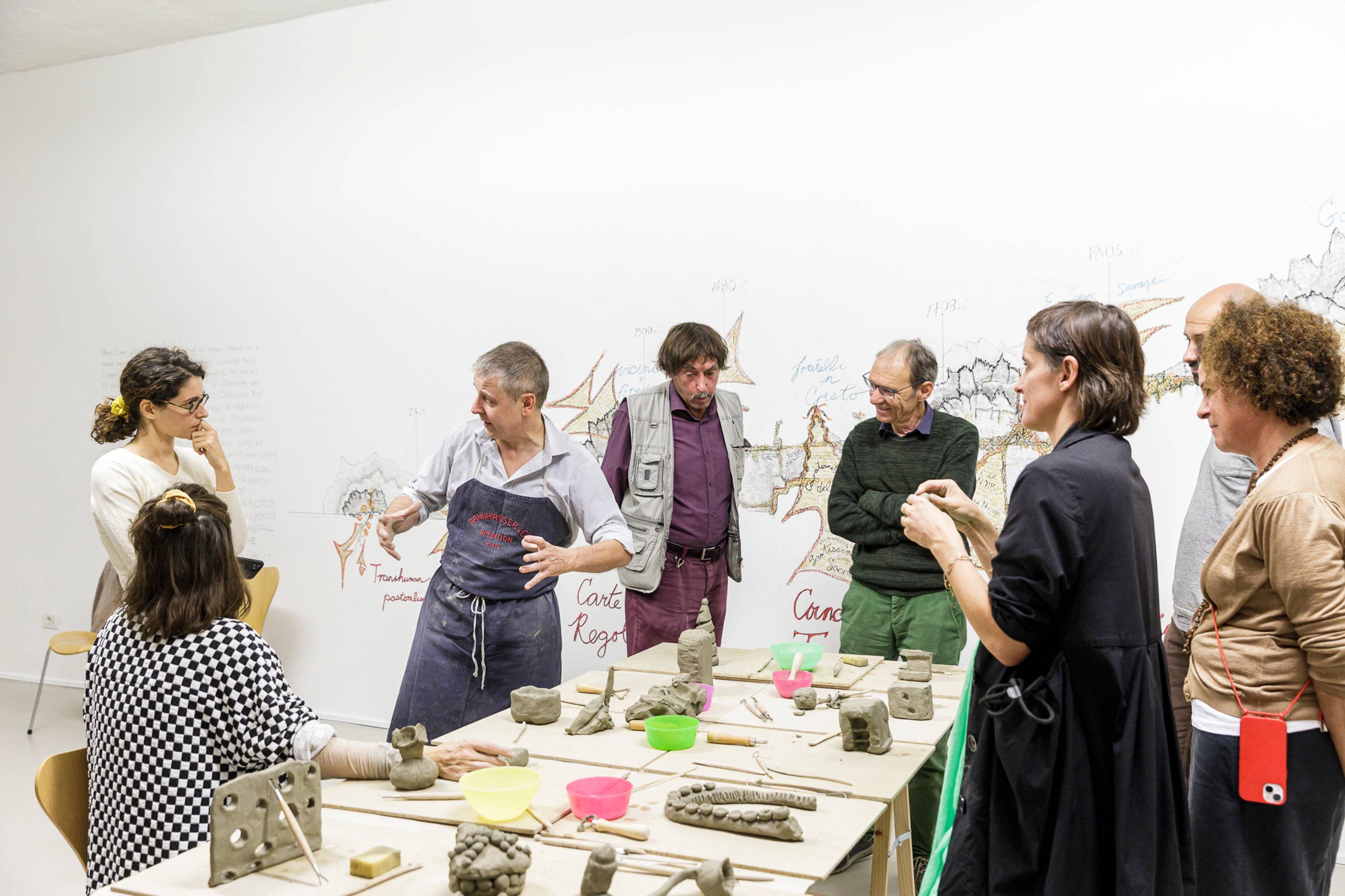SAVOIR-VIVRE #11
TILED STOVE WORKSHOP
at ar/ge kunst, Bozen/Bolzano
with Giuseppe Marcadent
ceramicist, stove-maker
curated by Simone Mair and Lisa Mazza
BAU – Institute for Contemporary Art and Ecology
The heart of any timber-clad room (Stube) is its tiled stove. Where and how is this traditional source of warmth still in production today? Which knowledge of stove-making is being passed down, and which is being adapted and applied in new ways? Like the other artists involved in the current exhibition at ar/ge kunst, The Lying Body: Only the Futures Revisit the Past, Walter Niedermayr takes the 15th century timber-clad room (Stube) as an opportunity to reflect on the interplay of tradition and possible futures, arranging a variety of such living rooms as an ornamental wallpaper design. His floor to ceiling roll-out of said wallpaper in the gallery is joined by a temporary workbench of the experienced Italian ceramicist Marcadent Giuseppe, who introduces us to the techniques used in the manufacture of tiled stoves. What might a tiled stove of the future look like? Workshop participants have a hands-on opportunity to show us, by forming fantastical oven designs from clay. And by way of introduction, they will first make a quick visit to the civic museum next door to ar/ge kunst, to see its extraordinary collection of tiles.
Ceramicist (master craftsman) Marcadent Giuseppe is highly skilled in work with porcelain and high-temperature stoneware. For almost fourty years he has been crafting handmade majolica stoves in Trentino. Since launching the company MARC CERAMIC DESIGN in 2008, he has further specialized in the manufacture of decorative elements, in particular, ceramic murals.
The Stove Workshop is part of the savoir-vivre workshop series devised to reflect and resonate with the exhibition programme. Inspired by the co-founder of postcolonial theory, Ms. Gayatri Spivak, to reinterpret the terms “savoir/pouvoir” – French for “knowledge/power” as well as for “to know/ to be able” – we welcome the idea that knowledge can be associated not only with “power” but also with “ability”. Combining the two terms allows the art institution to be read as a negotiable sphere, where different abilities and competencies produce collective knowledge.
maximum 20 participants
attendance free
language: Italian
registration at: [email protected]
